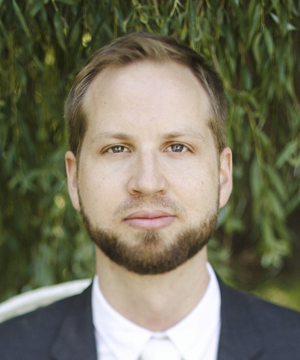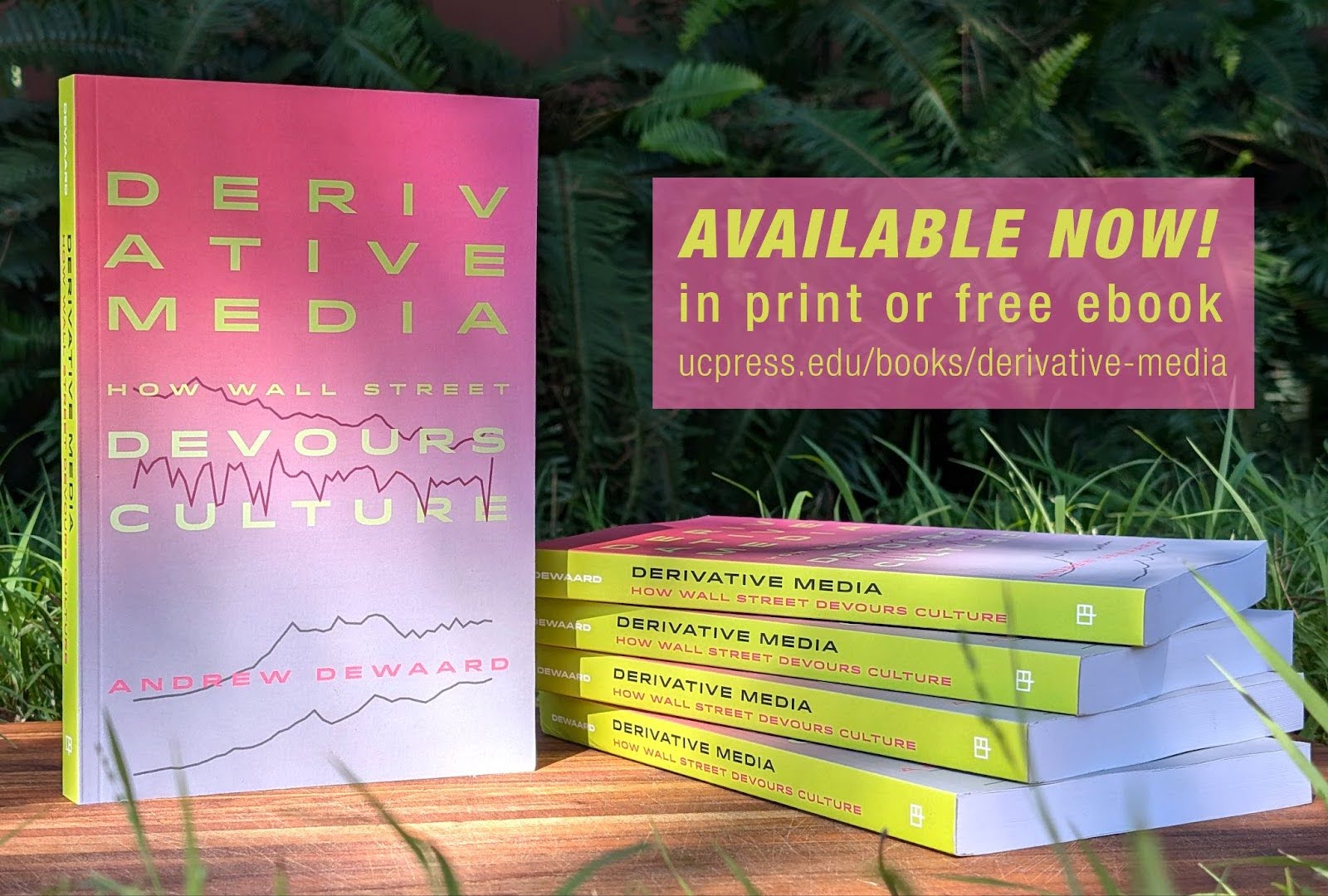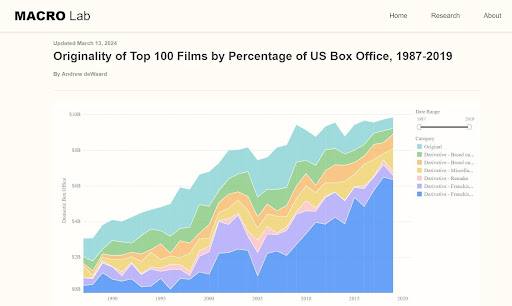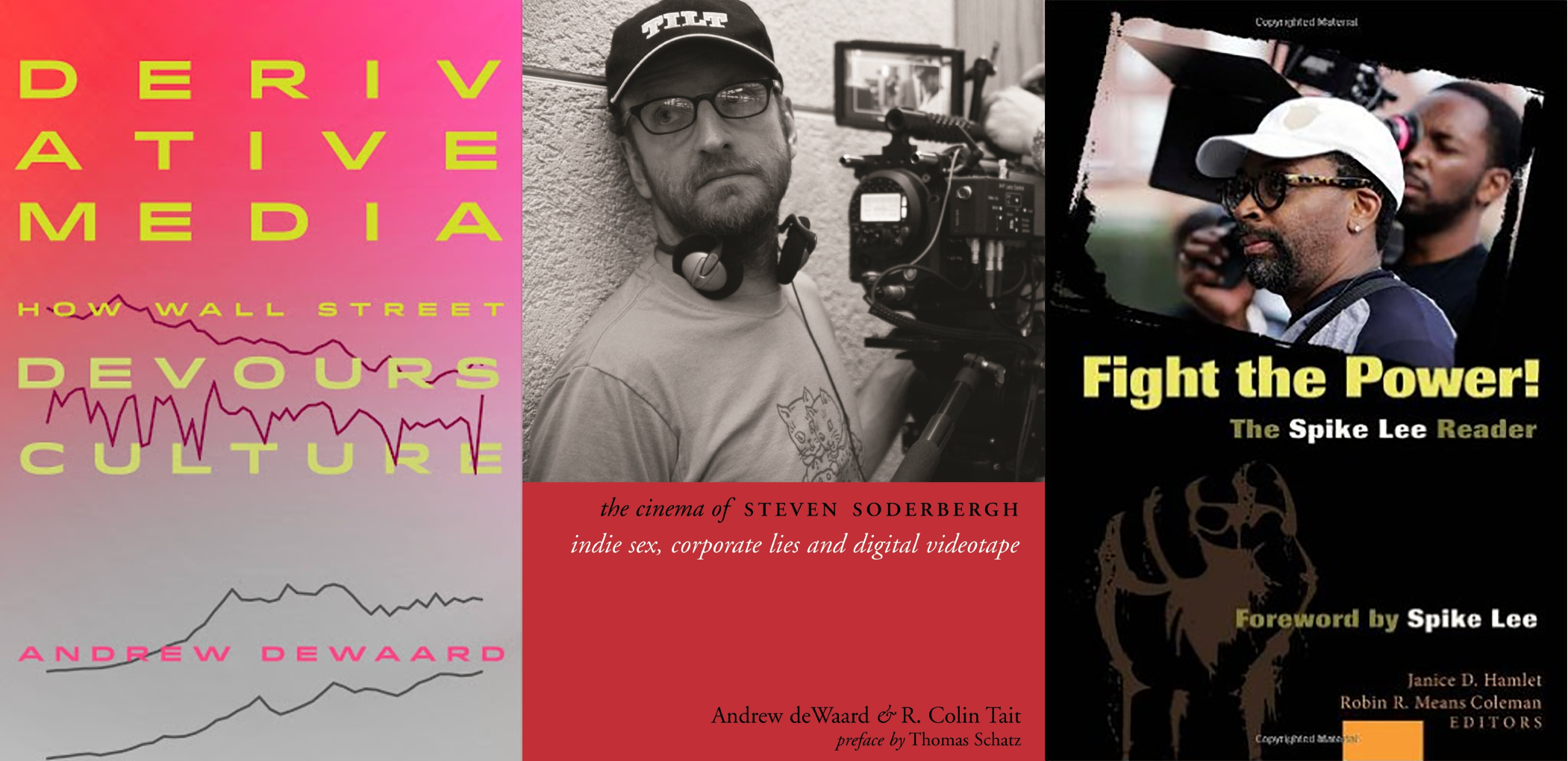
- adewaard@ucsd.edu
-
9500 Gilman Dr
Office: MCC 124B
La Jolla , California 92093
Associate Professor

Andrew deWaard researches the cultural industries, the political economy of media, financial capital, and media authorship. He is the author of Derivative Media: How Wall Street Devours Culture (UC Press, 2024; available open-access) and the co-author of The Cinema of Steven Soderbergh: indie sex, corporate lies, and digital videotape (Columbia University Press/Wallflower, 2013). Dr. deWaard is also the co-founder of The Cultural Capital Project, a SSHRC-funded research project that studies independent music in the streaming age, as well as the Media And Consolidation Research Organization (MACRO) Lab, which analyzes the effects of monopoly ownership on media.
PhD - University of California, Los Angeles - Cinema and Media Studies (2017)
MA - Film Studies - University of British Columbia (2009)
BA - Film Studies and Media, Information, and Technoculture - University of Western Ontario (2005)

Broadly defined, my research analyzes the relationship between culture and commerce, focusing on media systems, the social processes that shape them (capitalism, financialization, racialization, digitalization), and the roles of agents within them (institutions, corporations, workers, authors, and artists). My primary methodology for this work is the critical political economy of media tradition, though I am influenced by media studies, cultural studies, critical theory, heterodox economics, and the digital humanities. The media forms I concentrate on are film, television, and popular music, and I am motivated by questions such as: How do wealth, finance, ownership, and power affect our media industries and the cultural objects produced by them? How are social inequities shaped and perpetuated through media? How do artists and workers create within capitalist constraints? What policies and alternatives could be crafted to promote a more diverse, radical, thoughtful media system?
Major projects include:


“From Copyright Cartels to Commons and Care: A Public Infrastructure Model for Canadian Music Communitiese.” Co-authored with Brian Fauteux and Brianne Selman. Partnership: the Canadian Journal of Library and Information Practice and Research 17.1 (2022).
“Independent Canadian Music in the Streaming Age: The Sound from Above (Critical Political Economy) and Below (Ethnography of Musicians).” Co-authored with Brian Fauteux and Brianne Selman. Popular Music and Society 45.3 (2022).
“Financialized Hollywood: Institutional Investment, Venture Capital, and Private Equity in the Film and Television Industry,” JCMS: Journal of Cinema and Media Studies 59.4 (2020).
“The Cultural Capital Project: Radical Monetization of the Music Industry.” Co-authored with Brian Fauteux and Ian Dahlman. IASPM@Journal 3.1 (2013).
“The Geography of Melodrama, The Melodrama of Geography: The ‘Hood Film’s Spatial Pathos.” Cinephile 4.1 (2008). 58-65.
“The Global Social Problem Film.” Cinephile 3.1 (2007). 12-18. [Full text pdf]
“The Hood Is Where the Heart Is: Melodrama, Habitus, and the Hood Film.” Habitus of the ’Hood. Eds. Chris Richardson and Hans Skott-Myhre. Chicago, IL: Intellect Ltd, 2012. 253 – 270.
“Joints and Jams: Spike Lee as Sellebrity Auteur.” Fight the Power!: The Spike Lee Reader. Eds. Janice D. Hamlet and Robin R. Means Coleman. New York: Peter Lang, 2008. 345-361. “Intertextuality, Broken Mirrors, and The Good German.” The Philosophy of Steven Soderbergh. Eds. Steven M. Sanders and R. Barton Palmer. Lexington, KY: University Press of Kentucky, 2010. 107-119.
“ClipNotes in the Classroom: Film Annotation Software for Instruction and Collaboration.” Cinema Journal Teaching Dossier 3.3 (2016).
“Steven Soderbergh.” Oxford Online Bibliographies. Oxford University Press. 2015.
Collegium of University Teaching Fellowship, 2016
Kemp R. Niver Award in Film History, 2015
University of California Humanities Research Institute Research Fellowship, 2015
Georgia Frontiere Scholarship In Memory Of The Humanitarian Efforts Of Aaron Curtis Taylor, 2014
Otis Ferguson Memorial Award in Critical Writing, 2013
Student Writing Award, Society for Cinema and Media Studies, 2012
Jack K. Sauter Award, 2012
Social Sciences and Humanities Research Council of Canada Doctoral Fellowship, 2011
UC Regents Special Fellowship, 2011
Chancellor’s Prize, 2011
Graduate Courses
Undergraduate Courses